Dear Freedom Church,
What are you doing in the way of Freedom today?
I was raised in the AME Zion Church and know I benefited greatly from the support my family received for over 20 years. I am very proud of the practices some of our churches have in place to include scholarships and support programs to assist our college students. One church near my school gives students grocery money. I am also proud of the senior day care programs some churches have like the one my grandmother attends.

Increasing number of people not affiliated with the church called “Nones” or done with the church called “Dones.”
However, I struggle with the church today as my source of spiritual guidance. The church seems irrelevant to me now, or should I say, the institution of religion has totally turned me off with its lack of flexibility and proclamation that all truth is absolute. In reality, the truth is relative to the situation my peers and I find our selves. Actually, I am more spiritual than religious.
The major problem I have with the AME Zion Church is that it seems to be stuck in time. Many of the ministries and activities seem to be aimed at trying to reinvent the past and are not relevant to people’s lives today. We’ve moved beyond slavery, Jim Crow Laws, Civil Rights and our struggles of the past. It bothers me that the AME Zion, AME, and CME churches have not found a way to bring their resources, talent, and people together to provide better, more impactful services to our communities. We need ministries that allow us to be ourselves in this fast-paced, eclectic world that is full of diverse lifestyles and a ton of options to help with spiritual fulfillment. What’s with all the requirements and ‘holier than thou’ attitudes any way? I find myself heavily distracted with extended offering periods that appear to be competition instead of an opportunity to impact the lives of those in need including the homeless sleeping on our doorsteps.
The church seems to be full of laws and less freedom in the spirit. It is even irrelevant to children today, as they are technologically advanced while the church seems to be stuck writing on blackboards, handing out typewritten recitations and word of mouth communication, just like they did 20 years ago. Zion makes it so easy to take advantage of the many opportunities to get the spiritual fulfillment I need without having to compromise my current lifestyle.
However, that is not the real reason for this letter. I really want to give the AME Zion Church a chance. My hope is to learn that you are really living up to your name as The Freedom Church. Though we are free, I have witnessed families struggling to make ends meet even while living in public housing and receiving other subsidies. Too many people, young and old, male and female, rich and poor have been hurt by the church in a time when the world has no problem hurting us. We still have so many people of color who are marginalized in their communities, which are in no better shape than they are. There are leaders in the churches to include pastors, who take advantage of members and preach a hypocritical gospel, which has no spiritual, moral or ethical value because of their actions. The outreach projects seem to be more of a check in the box than an effort to really impact people through education and resources. Our ability to practice sexism is no better than societies practice of racism. Our ability to cast out those who we deem somehow to sin more than the other liars, adulterers, fornicators, murderers and such appear to contradict God’s mandate to love your neighbor as yo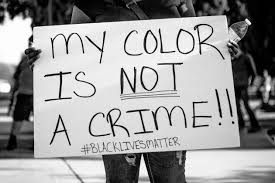 urself.
urself.
In a world that seems to be against us, young men and women are struggling to survive or just live without having to justify their very existence. To focus on their cell phones, tattoos, piercings, slouching pants, short skirts, and natural hairstyles encourages them to seek acceptance from a world, which really doesn’t seem to care one bit about their spiritual well-being. We began as a church aimed at increasing literacy through the creation of schools but as our schools that serve mostly black children are failing, I wonder what the AME Zion Church is doing now to provide improved education for our children.
My questions are: Freedom Church, how will you help us to reach the goal of liberation implicit in your mission? What I really want to know is, will we ever truly be free?
Signed
Almost Done in New Jersey
Dear Almost Done,
I pray this response to your thought-provoking and timely letter finds you in great spirit, health and strength.
How will you help us to reach the goal of liberation implicit in your mission?
It is interesting that your letter comes right after I completed a study aimed at creating a process to examine the ministry practices of churches in the New Jersey Annual Conference. The process may not be the perfect answer to your question, but I believe it may be the beginning of making an intentional effort at determining how and if we are reaching our goal as The Freedom Church. I was able to enlist seven churches to participate in the study by completing a survey that rated their practices in five categories defined as necessary to carry out effective church practices. The five categories were presented by Bishop Robert Schnase in his book Five Practices of Fruitful Congregations.1 The categories are radical hospitality, passionate worship, intentional faith development, risk-taking mission, and service and extravagant generosity.2
The survey also asked the participants to identify both effective and ineffective practices, changes made in their local churches to improve ministry practices over the last three years, as well as recommendations that they may have to help their church. My hope is that pastors and church leaders will use the findings to enhance ministry to meet the needs of people in today’s culture. In achieving these things, we enhance our chances of carrying out our mission of liberation as outlined in the Book of Discipline of the African Methodist Episcopal Zion Church (The Discipline), both spiritually and physically.3
The Freedom Church
In 2016, the Board of Bishops (BOB) of African Methodist Episcopal Zion Church (AME Zion Church) in their Episcopal Address posed similar questions including, “What does God call the AME Zion Church to be and do in this time and place?” Through its address, the BOB calls the church to refocus on its mission “to serve the present age” for God’s people.4 To help guide us in shaping our communities in a way consistent with the gospel today, the BOB set forth the quadrennial theme, “The Freedom Church: Refocusing on Our Purpose, Reviewing Our Practices, Retooling Our People, Reaching Our Potential.”5
Link to the AME Zion Website: https://amez.org/our-church/ and
The Quadrennial Address: Quadrennial-Address-2016
The other questions were:
How does the message of the Freedom Church – the message that preaches “good news to the poor” sound today? What must we know or do to “bind up the brokenhearted” in our homes and communities? What is the message of “liberty” that those who are “captives” need and wait to hear in contemporary society?6
The mission of the AME Zion Church is as relevant today as it was when the founders penned it in the 1820 Discipline.7 The system of slavery shaped a clear understanding of what it literally and spiritually meant to be poor, captive and brokenhearted. The founders compared the state of black people to that of the Israelites when Isaiah spoke his prophecy to them while they were in captivity in Babylon.8 The Freedom Church was a part of a religious movement that offered liberation from the systems of racial oppression and spiritual bondage to sin.9 The ultimate goal was to encourage Black people to embrace their humanity, which afforded them divine restoration, deliverance and the inalienable rights bestowed on all citizens by the Constitution of these United States.10 However, our ultimate mission is to aide the lost in finding Christ and in him lies true freedom.
The evaluation of our practices and training of our people must be conducted with an intention to provide holistic liberation today. The mission of freedom is still relevant because institutional racism remains intact.11 As a result, many people of color do not receive the full privileges and responsibilities of citizenship in the United States, the strength of the black community is diminished because the strength of the black family continues to be at-risk, and attempts to enact collective action to address any of these issues is undermined by the policies, procedures and actions of those in power aimed at keeping the black community divided, powerless, voiceless and in some cases without a vote to effect change.
On top of these historical challenges the black community faces, the 21st century has added the unpredictable, complex, eclectic and ever-changing paradigm shift of the postmodern world. Here the concepts of liberation and freedom take on new meaning, which draws attention to the fact that many black churches have not thought about or focused on the exploration of freedom and liberation for today. Now the must be able to navigate the accumulation of volumes of information, levels of political influence, diversity of cultures within the same neighborhood, co-mingling of religious practices, minimal structure, limited boundaries, and questionable oversight.12
The Findings
Though the study needs to be refined and conducted over a longer period of time, the findings of the study present three themes the participants believed were necessary to carry out effective ministry practices. Those themes were consistency, hospitality, and outreach. Without a consistent connection with those outside the church, it is nearly impossible to address their needs and concerns. Consistent practices give the oppressed a community to belong, a place to share and the feeling of worth.13 It must consistently practice an ethic of empowerment by faith with the intent to dismantle any system that fosters dependence, degradation or despair.
The church must act as an agent of change by first being nice, inviting, and welcoming to strangers while being open to their insights, needs, and contributions.14 In order for hospitality to be sustained over time, it must be tempered with the ability of the stranger to find the church dependable and trustworthy, as well as grateful to God for His love and mercy. Short-lived practices and practices that lack hospitality intended to address the issues confronting the black community have no lasting value or impact on people’s ability to be free and liberated from those things that bind them.
One pastor in a discussion on hospitality in the church describes it as having moved from the front porch to the backyard.15 He said, at one point in time people sat on their front porches and greeted everyone, including the stranger. People who were passing by would take time to stop and chat, thereby getting to know their neighbor. Now, he says, people have moved off the front porch to the backyard. He described the backyard as inviting but exclusive and unwelcoming. Though there is a party going on in the backyard, all are not greeted in the same manner, especially when a stranger. All are not welcome unless they meet the criteria set by the host. We must make an intentional effort to move back to the front porch by removing the stipulations that separate the church from the community-at-large. We must strive to get to know one another so that there is mutual support and respect.
By going out into the community and engaging them, the risk-taking service and mission initiatives enacted to will not only strengthen their spiritual development but will also strengthen the family and community as a whole, even in the face of racist action.
Will We Ever Be Truly Free?
Yes, one day we will truly be free. The Freedom Church must act in its calling to uplift Jesus to the masses. We have to remain faithful and take time to evaluate how the church may more effectively bring the good news of Jesus Christ to people who are still struggling to be free from oppression and racism while dealing with personal issues. However, as Galatians 5:1 reminds us, “For freedom Christ has set us free; stand firm therefore, and do not submit again to a yoke of slavery”, and 1 Corinthians 3:17 confirms, “Now the Lord is the Spirit, and where the Spirit of the Lord is, there is freedom”, we will be free one day.
The participants in the study stressed that our practices must be passionate expressions of devotion to God. They noted that inattentiveness during worship, unwillingness to surrender self to God, not attending worship, prayer or study opportunities, and nonparticipation in church outreach, fellowship or worship services as ways were confusing to strangers and not affirming of God’s work in our lives. The desire to truly love and honor God while loving our neighbor should be the driving force behind all of our ministry practices.16 This entails the regular attendance to worship, study and other means of grace while actively nurturing Christian spiritual growth. In order to combat the issues confronting the black community, the church must be engulfed in the word of God for the truth to come to light and liberate God’s people today. The congregation must be willing to be used by God to impact the lives of those shackled by the systems of oppression that exist now.17 This appears to include their giving of themselves, time, talent and resources to assist others.
The process presented may provide enough data to assist the AME Zion Churches that participated to implement changes to their practices. Nonetheless, the AME Zion Church must identify new criteria for effective practices, communicate findings, implement change, remain faithful to them and hold the church accountable for them. The leaders and the lay members must prepare themselves for change and the impact it will have on it, the community and the world.
The Apostle Paul reminds us in Galatians 5:13-14 that all of us were called to be free but we must refrain from using our freedom to satisfy selfish desires. Our freedom, he says, must be used to serve one another humbly with love, thereby fulfilling the commandment: “Love your neighbor as yourself.” So if we govern our lives accordingly, then we live lives in accordance with the Spirit of God. And the Scripture, 2 Corinthians 3:17 reminds us, “Now the Lord is Spirit, and where the Spirit of the Lord is, there is Freedom.
I pray you were able to find answers to your questions in my response. To God be the Glory!
Signed
Rev. Dr. Melanie Miller
1. Robert Schnase, Five Practices of Fruitful Congregations (Second edition), Nashville: Abington Press, 2018, ix.
2. Ibid., ix.
3. African Methodist Episcopal Zion Church. The Book of Discipline of the African Methodist Episcopal Zion Church. Charlotte, NC: AME Zion Publishing House, 2016.
4. Board of Bishops, Quadrennial Episcopal Address to the Fiftieth Session of the General Conference of The African Methodist Episcopal Zion Church. Charlotte, NC: AME Zion Publishing House, 2016, 3.
5. Board of Bishops, Quadrennial Episcopal Address, 3.
6. Ibid., 8.
7. William J. Walls, The African Methodist Episcopal Zion Church: Reality of the Black Church, Charlotte: AME Zion Publishing House, 1974, p. 27, 44.
8. Walls, The African Methodist Episcopal Zion Church, p. 43; Paris, “The Theologies of Black Folk in North America”, 386.
9. Peter J. Paris. “The Theologies of Black Folk in North America: Presidential Address to the New York Theological Society, 2012, 386.
10. Vincent W. Lloyd, “Black Secularism and Black Theology”, Theology Today, 68 (1), April 2011, 60.
11. Asafa Jalata, “Revisiting the Black Struggle”, Journal of Black Studies 33, no. 1 (2002): 86-116. http://www.jstor.org.proxy.library.emory.edu/stable/3180990.
12. Harland G. Broland, “Postmodernism and Higher Education”, The Journal of Higher Education, 66(5), Sept-Oct 1995, 522; Hudson, When Better Isn’t Enough, 4.
13. Christine D. Pohl, Living into Community: Cultivating Practices That Sustain Us, Grand Rapids, MI: William B. Eerdmans Publishing Company, 2012, 159.
14. Pohl, Living Into Community, 159; Schnase, Five Practices of Fruitful Congregations, 4.
15. Conversation with a participating pastor, March 9, 2019.
16. Schnase, Five Practices of Fruitful Congregations, 53.
17. Cone, A Black Theology of Liberation, loc. 2627; Schnase, Five Practices of Fruitful Congregations, 70.
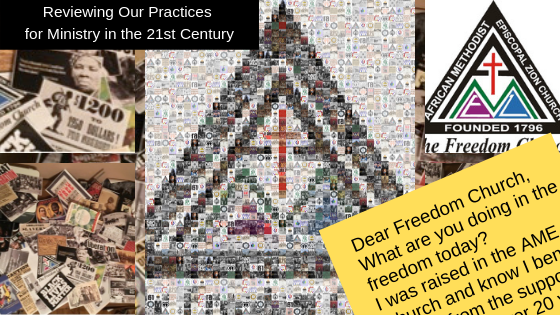

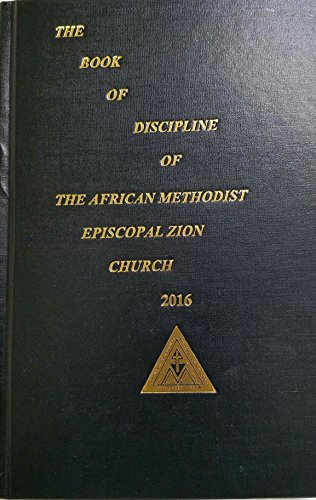
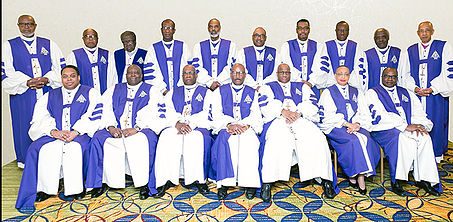

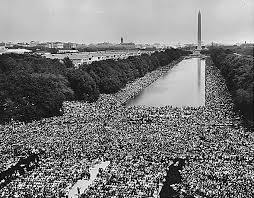

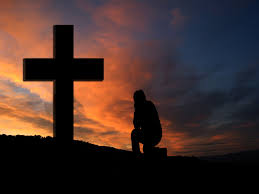
Great post